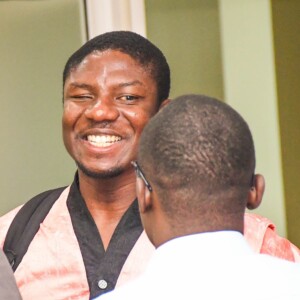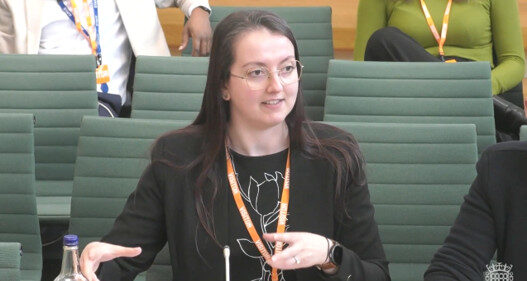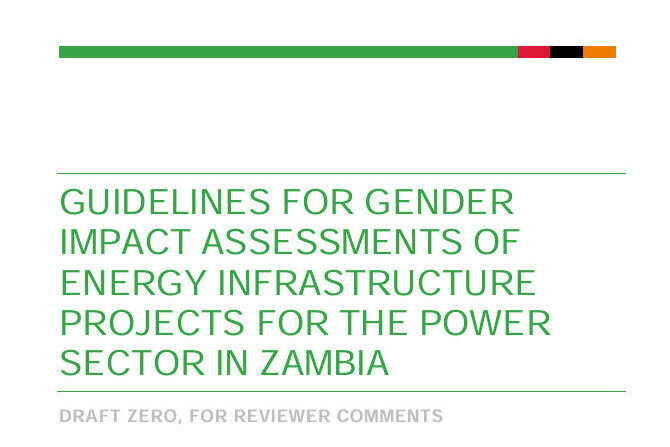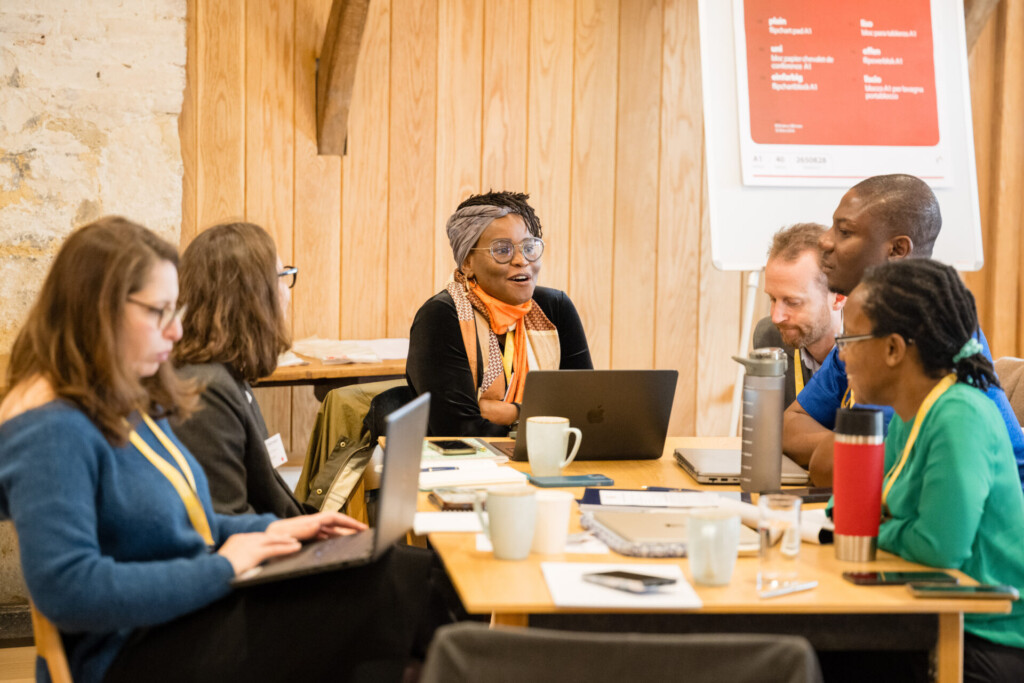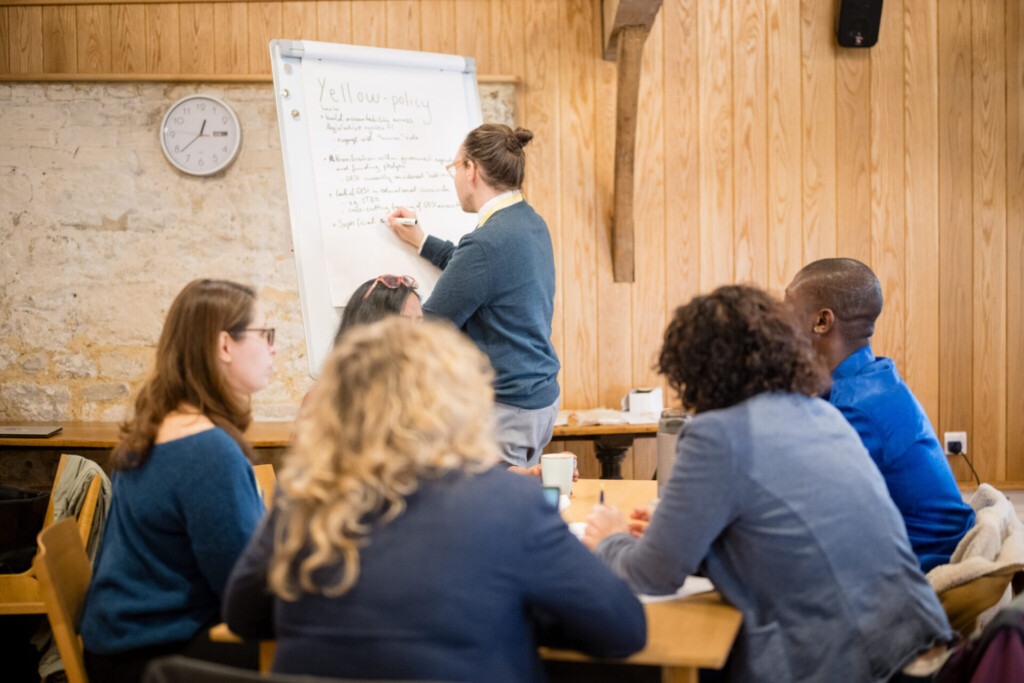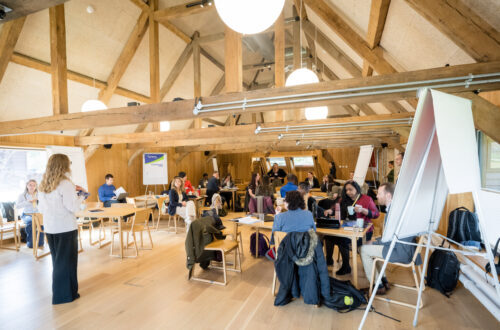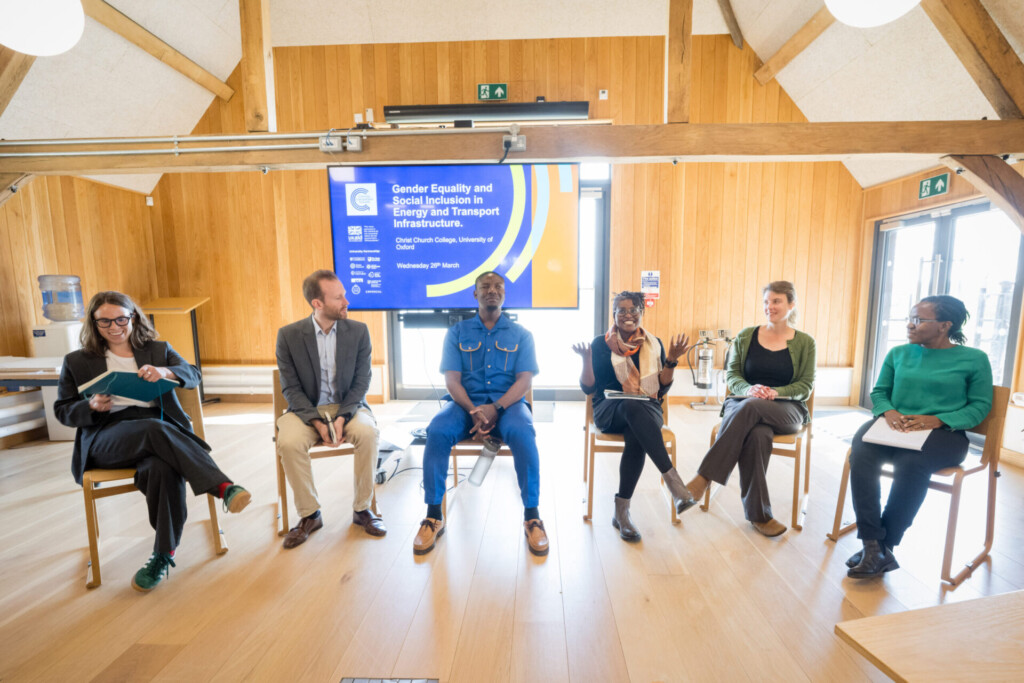Context
Climate-compatible growth cannot succeed without inclusive infrastructure that addresses the unique needs and vulnerabilities of marginalised groups.
A GESI Strategy (right) has been created to ensure that the aims of CCG are achieved through more equitable infrastructure and decision-making. It serves to guide CCG internally, and to communicate our objects to our partners, with a clear framework and set of objectives. Separate, context-specific strategies are being created to guide how we can best achieve these aims with our partner countries.
This strategy is complemented by a GESI Unit to oversee the overall progress of CCG, and a GESI Taskforce to implement the activities and serve as a point of contact for the programme.
Vision Statement:
CCG will lead pioneering change in climate-compatible growth by embedding Gender Equality and Social Inclusion (GESI) at the heart of our initiatives, ensuring that every investment in energy systems and transport systems is inclusive and equitable, and sets a global standard for best practices in GESI integration.
Through workshops, projects, research, and country strategies, CCG aims to be GESI-responsive and transformative at each stage of the programme. This page provides updates of some of the work done across CCG to promote the needs of marginalised communities in the context of energy and transport infrastructure.
Achievements
Agile Project
Creating a Framework for
Equitable and Inclusive Infrastructure Modelling
- Motivation: Ignoring GESI in modelling for energy and transport overlooks the unique needs and vulnerabilities of marginalised groups, producing outputs that risk reinforcing inequities instead of informing inclusive, just transitions
- Approach: We developed a framework that identifies concrete and actionable entry points for embedding GESI across the full modelling lifecycle. This was based on a scoping literature review, expert interviews, and workshops.
- Framework: The framework to the right highlights different actions for four phases of modelling (research design, model implementation, outputs/interpretation, and impact and communication).
- Case Study: We applied the framework retrospectively to a hydrogen production model, demonstrating how GESI integration at each stage could have improved equity outcomes in large-scale hydrogen infrastructure planning.
- Collaborative Research: Guidelines for inclusive and equitable energy and transport modeling is now available to read in iScience. It has 20 CCG co-authors across the UK, Sweden, Kenya, and India.

Past Events
Implementing GESI in Energy and Transport Infrastructure Workshop
Date: 26 March 2025 | Location: Oxford
This workshop gathered stakeholders to explore how gender equality and social inclusion (GESI) can be more effectively integrated into energy and transport systems modelling, design, and delivery. Participants from research, policy, private and philanthropic finance, and development, engaged in a mix of panel discussions, presentations, and breakout sessions designed to identify key barriers, explore emerging frameworks, and propose practical solutions.
The event was attended by representatives from BII, Climate Parliament, ENERGIA, FCDO, GIZ, the Global Disability Innovation Hub, the Global Alliance for People and Planet, Green Grids Initiative, the Green Cities and Infrastructure Programme, IFC, International Transport Workers’ Federation, MECS, ODI, PIDG, Redwheel, SEforALL, Shell Foundation, UNOPS, World Bank/ESMAP, and the Universities of Oxford, Loughborough, and University College London.
Read the full report from the workshop here.
Disability in Energy Transition Workshop
Date: 13 March 2025 | Location: Nairobi, Kenya
Organised and led by Dr Gerald Arhin, this workshop aimed to initiate a pan-African dialogue on improving disability sensitivity and advocacy within low-carbon energy planning. In doing so the opportunities and challenges for Persons with Disabilities can be better understood.
The event was co-organised by CCG, Loughborough University and the Strathmore Energy Research Centre and had over 20 participants from Zambia, Malawi, Ghana, and Kenya. The audio commentary on this event is available through a series of videos posted on our YouTube channel here.
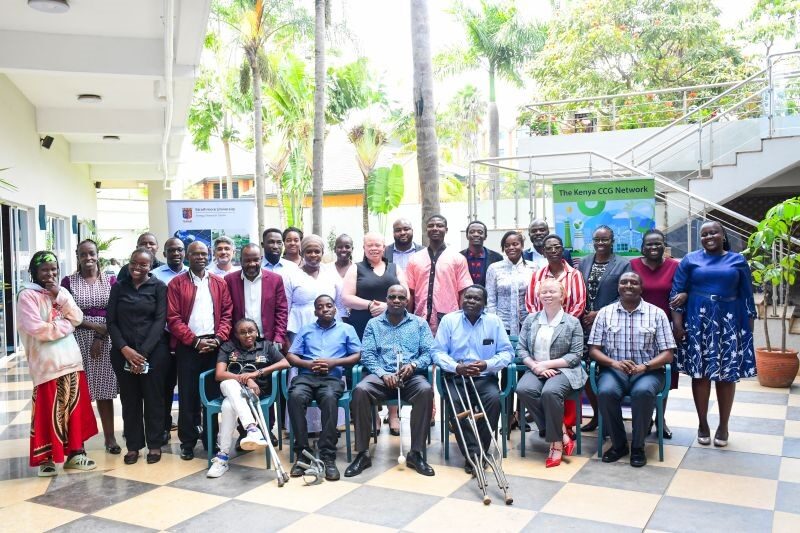
Women in Energy Modelling Webinar
Date: October 2024 | Location: online
A roundtable discussion with four women involved in energy and modelling, chaired by Vivien Foster, CCG’s International Partnerships Lead.
The panel consisted of Bibi Nabilah Hassen (Researcher/Doctoral Student, University of Mauritius and EMP Alumna); Nadia Ouedraogo, PhD, (Economic Affairs Officer, United Nations Economic Commission for Africa); Christine Lins (Executive Director, GWNET: Global Women’s Network for the Energy Transition); and Payal Patel (Associate Programme Officer, TWAS – The World Academy of Sciences).
Publications
September 2025: Marissa Bergman, Julia Tomei, Stephanie Hirmer, Beatrice Stockport, Fatima Afifah, James Dixon, Leonhard Hofbauer, Alycia Leonard, Pietro Lubello, Elena Pierard Manzano, Brunilde Verrier, Margaux Daly, Neve Fields, Francesco Gardumi, Steve Pye, Mourice Kausya, Kirsty Mackinlay, Kevin Nayema, Elsie Onsongo, Divya Subash Kumar
September 2025: Neve Fields, Alycia Leonard, Martin Mutembei, Anne Nganga, Leigh Martindale, Marissa Bergman, Mwansa Kaoma, Mark Howells, Ed Brown
April 2025: Alycia Leonard, Kuthea Nguti, Micaela Flores Lanza, Stephanie Hirmer
September 2024: Tonny Kukeera, Alycia Leonard, Pu Yang, Stephanie Hirmer
August 2022: Lucille Onyango, Stephanie Hirmer, Julia Tomei
March 2022: Stephanie Hirmer, Antonella Mazzone, Alycia Leonard, Costanza Conforti
Feb 2022: Stephanie Hirmer, Alycia Leonard, Sofia Conforti, Costanza Conforti
Feb 2022: Stephanie Hirmer, Alycia Leonard, Sofia Conforti, Costanza Conforti
GESI Unit
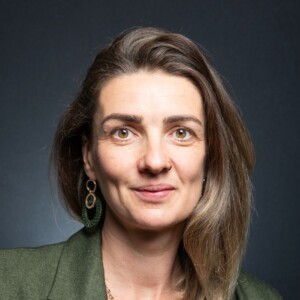
Prof. Stephanie Hirmer
Research Chair + Equity and Governance Community Co-Lead
University of Oxford



